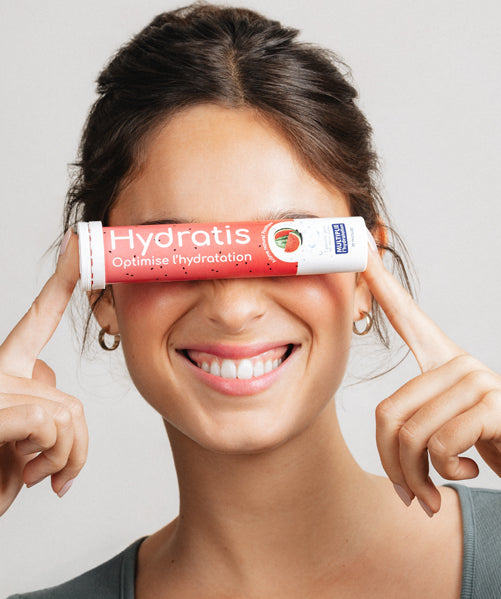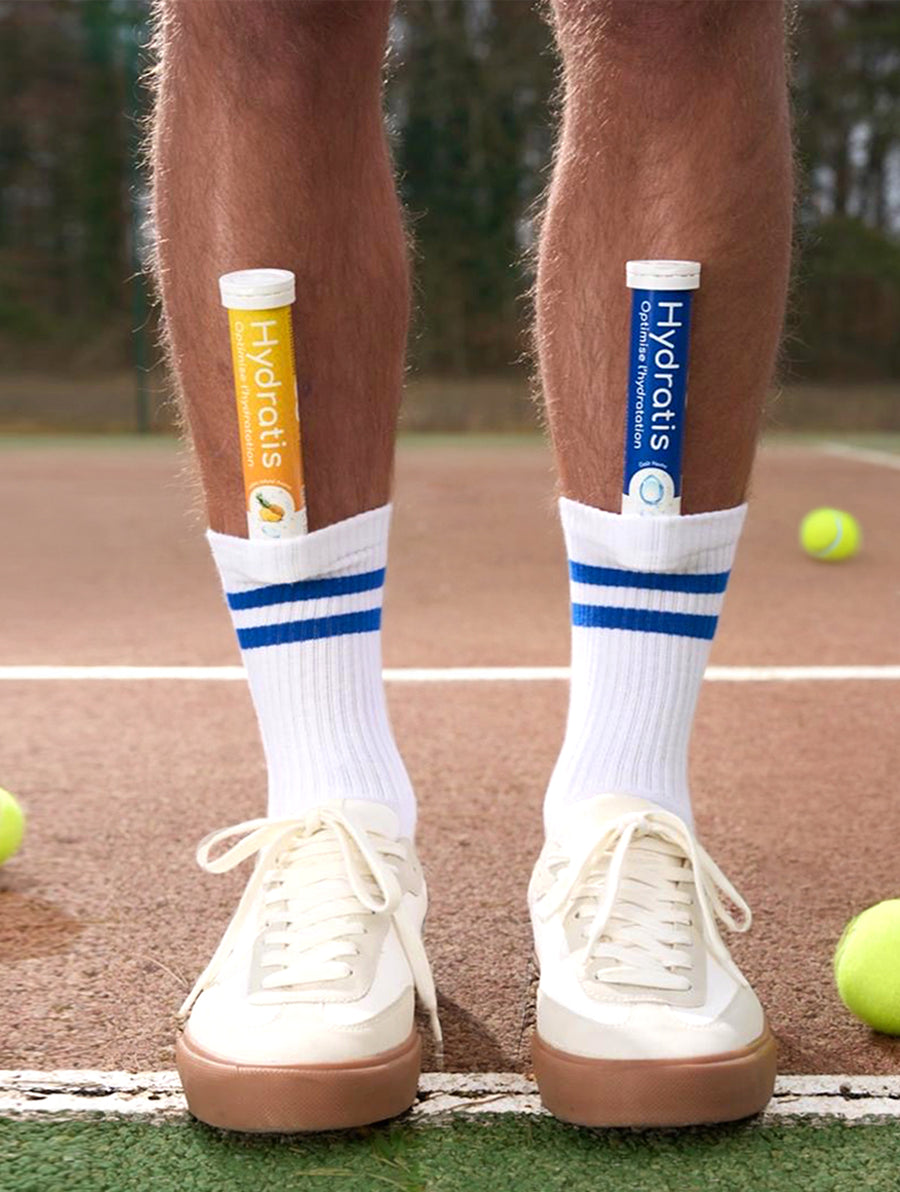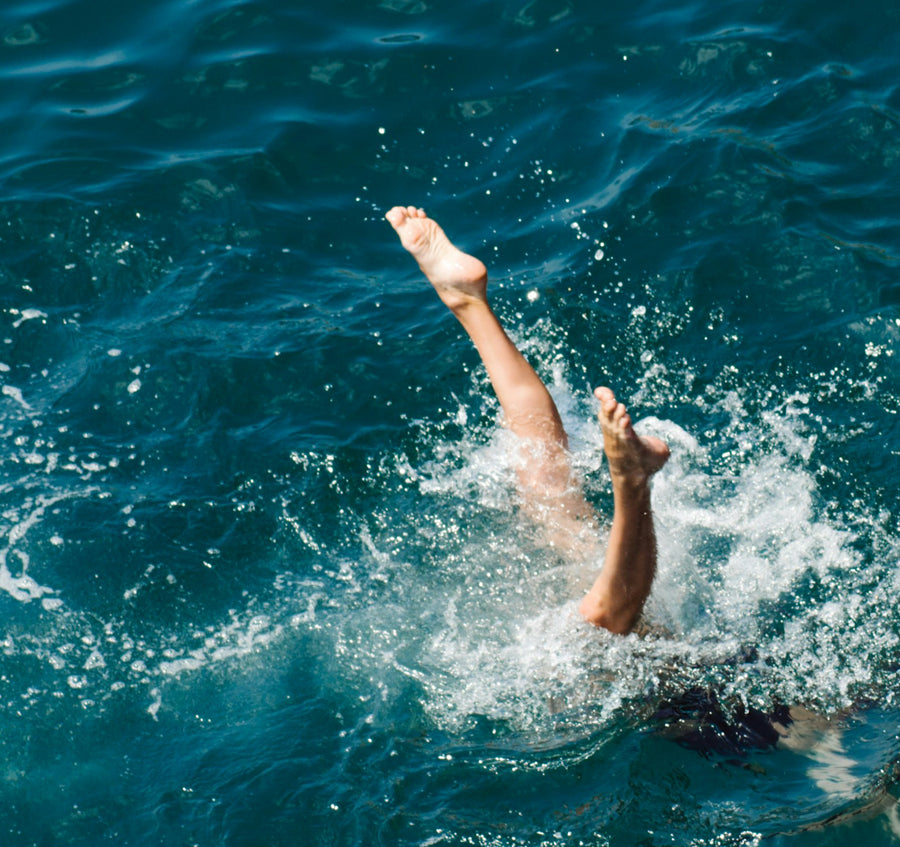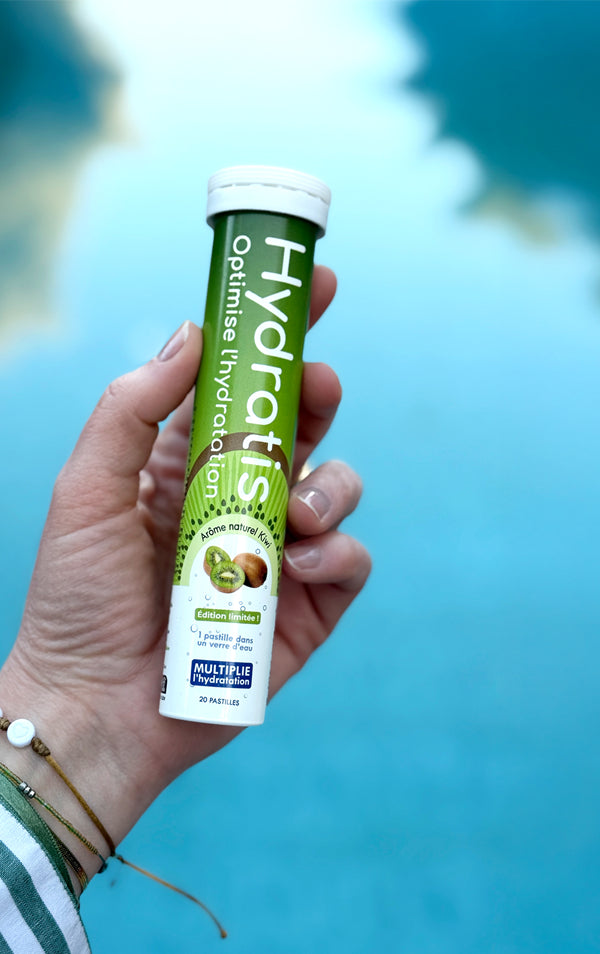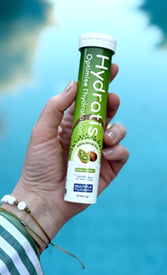Waking up with a dry mouth or a strong thirst might seem harmless. However, when these episodes become frequent, they can indicate an imbalance in the body that deserves attention. Understanding its cause is the first step towards regaining restful sleep.
Why do we encounter these phenomena during the night?
Mechanisms of nighttime hydration
During sleep, saliva production naturally decreases. This slowdown, combined with certain environmental or physiological factors, can lead to a sensation of dry mouth . Dry ambient air or insufficient ventilation exacerbates this inherent phenomenon.
Difference between water insatiability and dry mouth

It's important to distinguish between a dry mouth , also called xerostomia, and a true sensation of thirst. A dry mouth is often linked to a decrease in saliva production, without necessarily indicating an overall lack of water in the body. Conversely, thirst reflects a general need for water in the body , signaled by the brain when fluid balance is disrupted. These two sensations can occur simultaneously, but they have different origins and different implications for the body.
The role of sleep and breathing
Breathing through the mouth during the night is one of the main causes of oral dehydration. A blocked nose, snoring, or breathing disorders such as sleep apnea can intensify this dehydration, thus disrupting nighttime comfort.
The most frequent causes
Dehydration is one cause. In fact, not drinking enough throughout the day can lead to a need for water in the late evening or during the night. The body then compensates for this lack, generating a desire to drink at rest.
Breathing through the mouth (blocked nose, snoring…)
Next, we will see that when the nasal passages are congested , breathing automatically switches to the mouth. This secondary breathing mode promotes the evaporation of moisture from the mouth, especially in the presence of dry ambient air.
Medications and medical treatments
Certain medications, such as antihistamines, antidepressants, or diuretics, reduce saliva production . This induced dryness can be particularly noticeable at night, when salivation is already slowed.
Chronic conditions (diabetes, Sjögren's syndrome, sleep disorders)
Sjögren's syndrome affects the glands responsible for saliva production. Diabetes, by disrupting blood sugar regulation, often leads to a sensation of dry mouth. Other disorders, such as sleep apnea, also play a role.
Tobacco and alcoholic beverages
Smoking reduces the quality of saliva, while alcohol promotes dehydration . These two factors combined lead to dryness of the mucous membranes, particularly during rest periods.
A diet that is too salty or spicy
Evening meals high in sodium or condiments stimulate water retention. This imbalance often manifests after bedtime, particularly as a feeling of dry throat or a need to hydrate.
Should we be worried about this?
Is this an indicator of diabetes?
Nighttime dryness is common in poorly controlled diabetes. It may be accompanied by other symptoms such as persistent fatigue , blurred vision, or frequent urination. If you experience these symptoms, it is advisable to consult a doctor.
When should you consult a healthcare professional?
It is recommended to seek medical advice if these episodes are regular, intensify, or are accompanied by other symptoms (weight loss, sleep disturbances , pain). An evaluation may be necessary to rule out any underlying medical condition.
Diseases associated with monitoring
Certain chronic diseases, particularly autoimmune or neurological disorders, can cause altered salivation. Chronic respiratory problems should also be considered, especially if they disrupt sleep quality.
How can the situation be improved?

Hydration distributed throughout the day
Rather than drinking a large amount all at once at the end of the day, it's better to spread your fluid intake throughout the day. That's why preventative hydration, starting in the morning, helps avoid nighttime thirst and promotes uninterrupted sleep.
Limit salty or spicy foods at dinner
Foods high in salt or spices stimulate the sensation of thirst. In the evening, opt for lighter meals , composed of water-rich vegetables (zucchini, cucumber, salad, etc.) and low in processed foods or industrial sauces.
Improving your sleep environment
A room that is too dry will tend to promote oral dehydration. Therefore, remember to ventilate the room daily, avoid excessive heating, and use a humidifier if necessary. A humidity level between 40 and 60% is ideal for respiratory and oral comfort.
Appropriate oral care
Choose a gentle toothpaste , free of irritants, enriched with fluoride. Using alcohol-free mouthwash can also help maintain well-hydrated oral mucosa and reduce nighttime dryness.
Reduce irritants
Tobacco and alcohol consumption impairs the proper functioning of the salivary glands and alters the quality of saliva. These substances promote the drying of oral mucous membranes, particularly during sleep when saliva production is naturally reduced. Reducing or even eliminating their use helps restore more effective salivation and provides lasting relief from nighttime dry mouth.
Natural solutions
Simple actions can temporarily relieve the feeling of dryness: take a small sip of water before bed , use a moisturizing mouth spray, or chew a few fresh parsley leaves. These gentle methods promote saliva production and improve oral comfort during the night.
FAQ – Answers to frequently asked questions
What causes my mouth to be dry at night?
It can be linked to mouth breathing, an overly dry atmosphere, the use of certain medications (antihistamines, antidepressants...), or even to an underlying disorder such as sleep apnea.
Why am I not completely full after drinking?
This may indicate a metabolic disorder, high blood sugar, or poor absorption of consumed water.
What diseases can cause this sensation?
Several conditions can be responsible: diabetes (often uncontrolled), Sjögren's syndrome, sleep-disordered breathing, or certain neurological diseases. A medical consultation is essential for an accurate diagnosis.
Is feeling thirsty at rest related to diabetes?
It's not always the case, but excessive thirst (polydipsia) at rest, especially if accompanied by frequent urination or fatigue, can be an early sign. A blood glucose test is then recommended.
Is it bad to drink during the night?
Drinking a small amount of water at night is not problematic in itself. However, if it causes frequent awakenings or masks an underlying cause, it's advisable to discuss it with a healthcare professional. The key is to stay properly hydrated throughout the day to minimize these nighttime needs.
Bibliography
Sjögren's Syndrome - https://www.msdmanuals.com/fr/professional/troubles-musculosquelettiques-et-du-tissu-conjonctif/maladies-rhumatismales-syst%C3%A9miques/syndrome-de-sj%C3%B6gren
Inserm (National Institute of Health and Medical Research) — Articles and reports on the physiology of sleep, saliva production, and associated diseases (diabetes, sleep apnea):
https://www.inserm.fr/dossier/sommeil/
https://www.inserm.fr/dossier/apnee-sommeil/
https://www.vidal.fr/maladies/bouche-dents/bouche-seche/traitements.html
Wolff, A., Joshi, RK, Ekström, J., Aframian, D., Pedersen, AM, Proctor, G., Narayana, N., Villa, A., Sia, YW, Aliko, A., McGowan, R., Kerr, AR, Jensen, SB, Vissink, A., & Dawes, C. (2017). A Guide to Medications Inducing Salivary Gland Dysfunction, Xerostomia, and Subjective Sialorrhea: A Systematic Review Sponsored by the World Workshop on Oral Medicine VI. Drugs in R&D, 17(1), 1–28. https://doi.org/10.1007/s40268-016-0153-9
Guggenheimer, J., & Moore, P. A. (2003). Xerostomia: etiology, recognition and treatment. Journal of the American Dental Association (1939), 134(1), 61–119. https://doi.org/10.14219/jada.archive.2003.0018
Lukezic, M., Righini, V., Di Natale, B., De Angelis, R., Norbiato, G., Bevilacqua, M., & Chiumello, G. (2000). Vasopressin and thirst in patients with posterior pituitary ectopia and hypopituitarism. Clinical endocrinology, 53(1), 77–83. https://doi.org/10.1046/j.1365-2265.2000.01030.x
